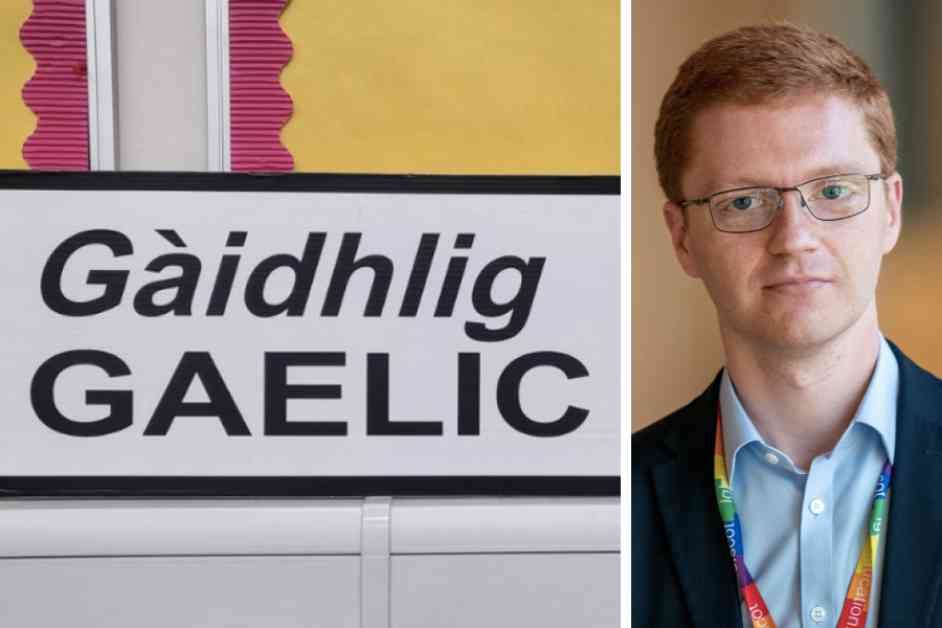The Scottish Greens are making waves in the push for equal respect for the Scots and Gaelic languages, revealing groundbreaking proposals that could change the linguistic landscape of Scotland as we know it. MSP Ross Greer has taken the lead in presenting amendments to the Scottish Languages Bill, set to be reviewed by the Holyrood’s Education Committee this Wednesday.
Promoting Linguistic Equality
If these amendments are approved, Gaelic and Scots will finally receive official recognition in Scotland, marking a significant shift in language policy that aims to support and protect these historically marginalized languages. This move would not only elevate the status of Gaelic and Scots but also bring about crucial changes in the educational support systems for both languages across the country.
A Voice for Preservation
Greer emphasized the importance of safeguarding these languages, stating that they are an integral part of Scotland’s cultural heritage that has faced centuries of suppression. He highlighted the critical need for legislative measures to ensure the survival and flourishing of Gaelic, which is currently on the brink of extinction. By enshrining the principle of equal respect for Gaelic and Scots in law, Greer’s amendments seek to reverse the damage caused by years of neglect and promote a future where these languages can thrive.
Building a Linguistic Legacy
With a total of 97 proposed amendments for the bill, Greer’s contributions stand out, with 46 amendments bearing his name. One notable addition includes extending the responsibilities outlined in the 2005 Gaelic Language Act to various institutions such as colleges, universities, ScotRail, and Scottish Water. These changes aim to establish clear guidelines for these organizations regarding the promotion and support of Gaelic language initiatives, ensuring a more robust framework for linguistic preservation and revitalization.
A Unified Future
Deputy First Minister Kate Forbes echoed the sentiment of linguistic empowerment, emphasizing the bill’s potential to enhance Gaelic medium education, establish teaching standards for Scots and Gaelic in schools, and improve access to early learning and childcare services in Gaelic. Through collaborative efforts across Parliament, there is a growing momentum to strengthen the bill and cater to the diverse linguistic needs of communities across Scotland.
As the debate unfolds in Holyrood, the future of Gaelic and Scots hangs in the balance. Will these proposed changes pave the way for a linguistic renaissance in Scotland, or will centuries of neglect continue to erode the rich tapestry of Scotland’s linguistic heritage? The decisions made in the coming days will not only shape the fate of these languages but also reflect Scotland’s commitment to preserving its cultural legacy for generations to come.












